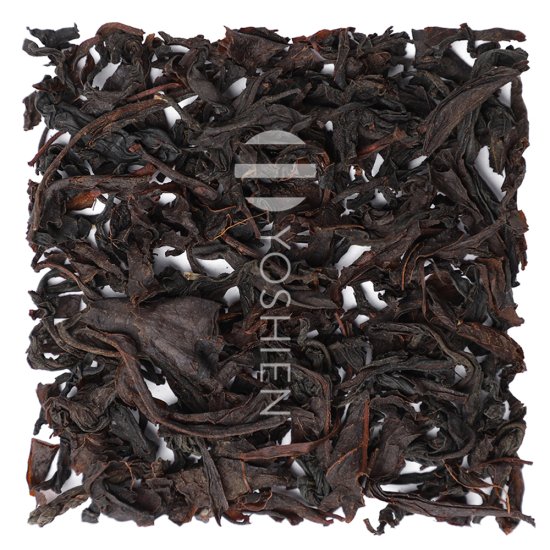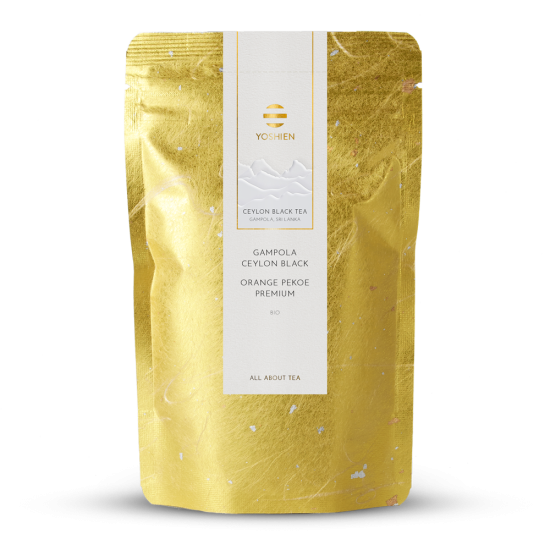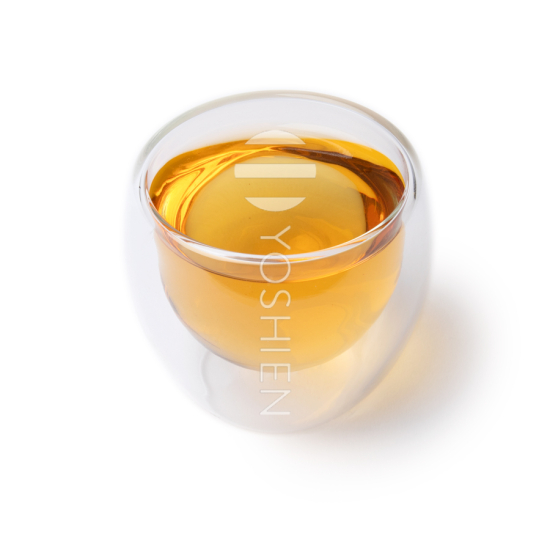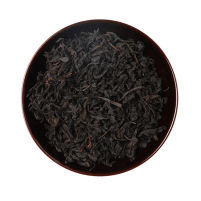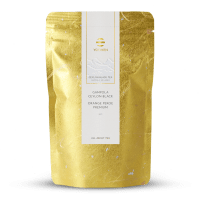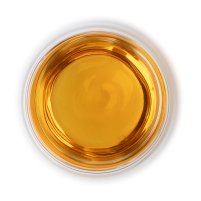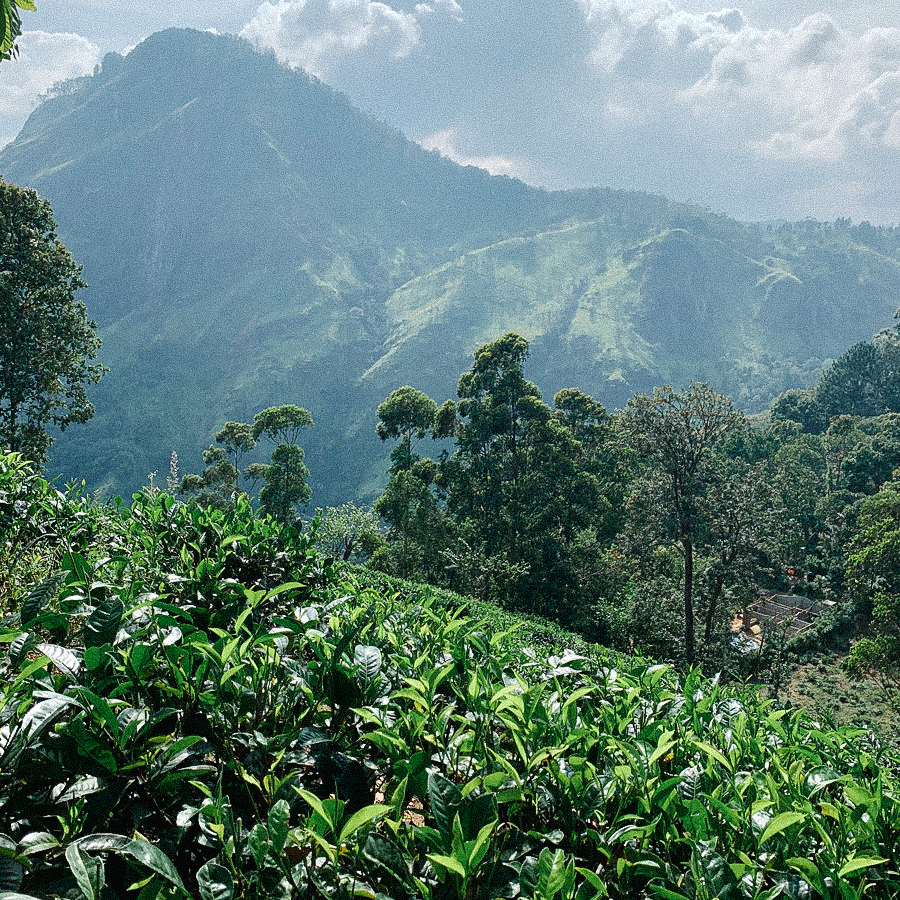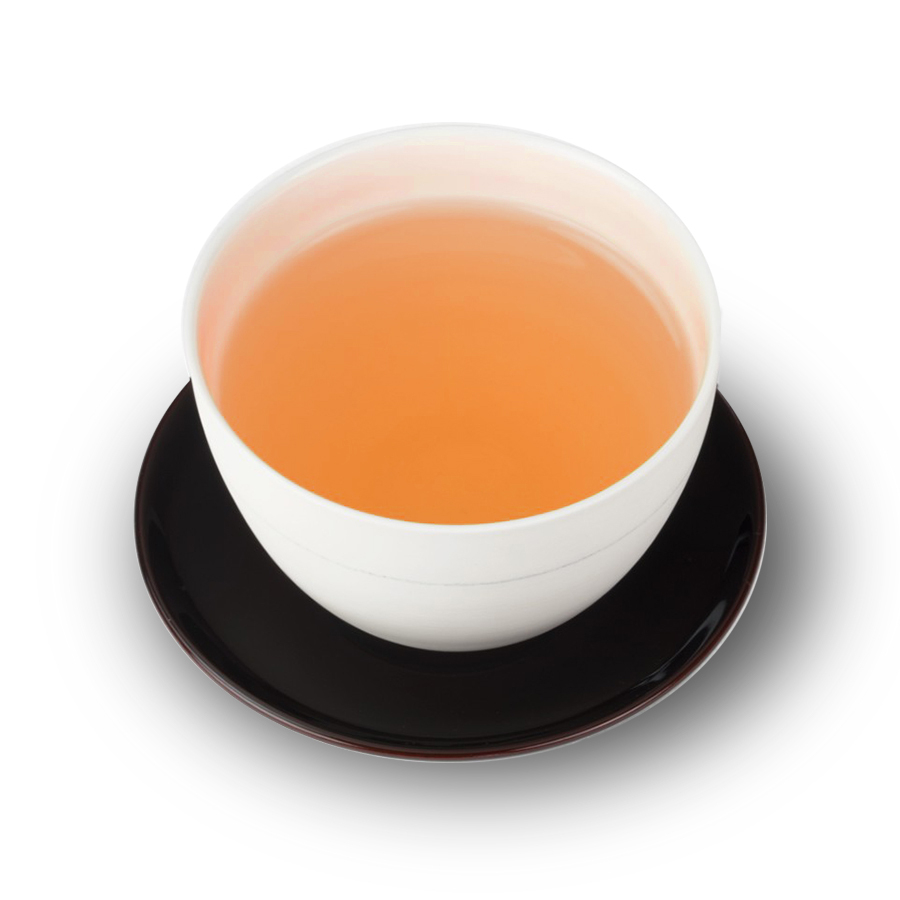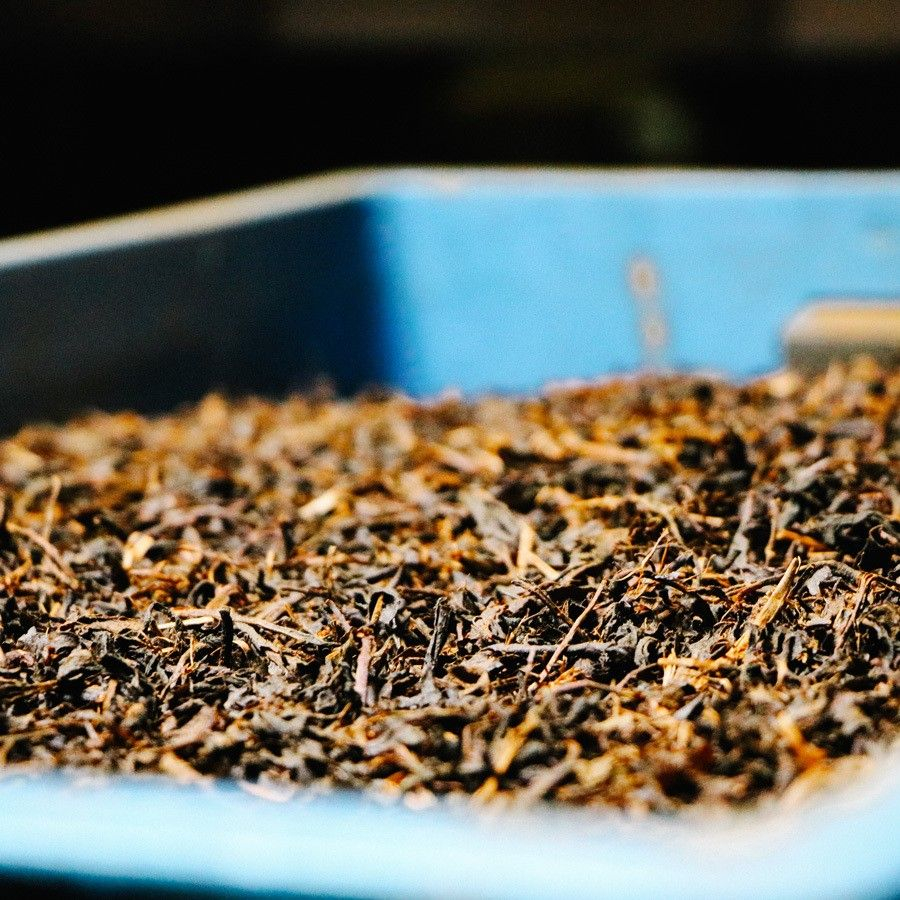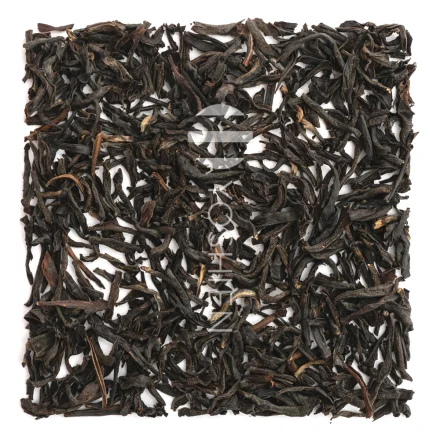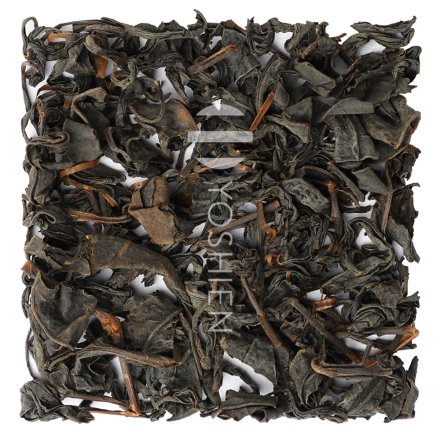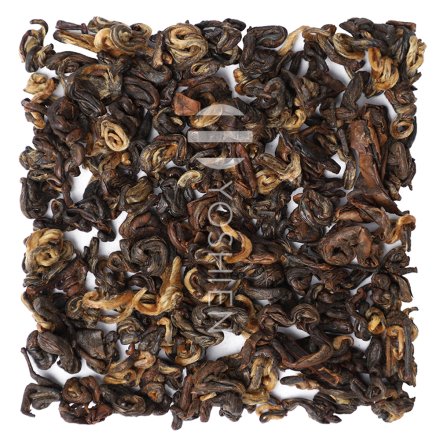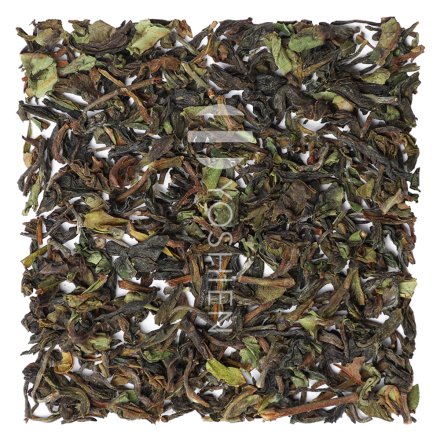The area around the city of Gampola in the heart of Sri Lanka offers ideal topographical and climatic conditions for cultivating high-grade Ceylon tea. The terroir soil is rich in minerals, and the landscape features numerous elevated and steep slopes. The annual average temperature is 20-25°C, which enables tea farming the whole year long. Regular shifts between sun, cloudy days, and rainfall ensure that the tea plants are exposed to the weather elements essential for their growth.
Our organic Ceylon black tea is classified as an orange pekoe. The reference point for classification refers to the qualities of the tea leaves after the production process and sorting. Tea gradings are as follows:
- Dust: small leaf particles
- Fannings: 1mm small leaf bits
- Broken Leaf: medium-sized pieces, incomplete leaves
- Orange Pekoe: whole leaves
Dust and fannings are the smallest pieces of the tea leaves and are typically used for tea bags. Much larger are the categories broken leaf and orange pekoe, which can be used for loose leaf teas or in tea blends.
This grading system has its roots in British colonial trading when Britain began cultivating tea in India. For the grading of tea from Darjeeling and Nepal, there is an extended grading degree of SFTGFOP1 (Special Finest Tippy Golden Flowery Orange Pekoe 1), one step above FTGFOP1 (Finest Tippy Golden Flowery Orange Pekoe).
This orange pekoe is a single-estate tea from this year's harvest, which can be tasted in the tea's especially fresh and aromatic flavour. The excellent terroir ensures a well-rounded, full-bodied profile. Due to the high proportion of intact leaves and buds, the tea is suitable for multiple infusions. This tea is 100% certified organic and produced by a self-supporting regional farmers' collective that actively promotes the transition to organic farming in Sri Lanka.
Single Origin
This tea is exclusively sourced from the above mentioned tea farm in Gampola, Sri Lanka. Sourced directly from the tea estate.
Organic Certification




